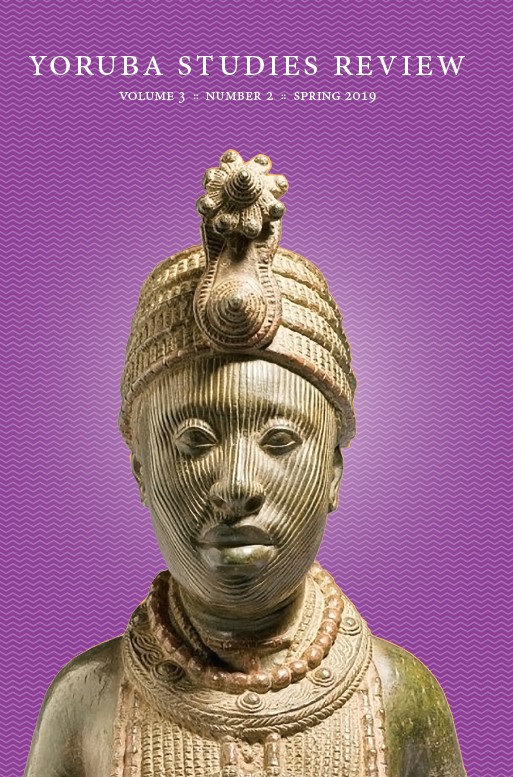Abstract
What is in a name? It is a testament to everything relational, from the ceremonial to the conventional to the familial! The progression from ‘Knowing of a person’ (mímọ ẹnì kan); ‘knowing something about that person’ (mímọ nǹkan nípa ẹni náà, mímọ ẹni náà); to ‘knowing that person well, personally’ (mímọ ènìyàn náà dáadáa) describes the various levels and depths of measuring knowledge of and/or familiarity with that person. It determines and builds the foundation of relationships. Thus, the trajectory of relationships run the gamut from having heard once of or about the person’s name mo ti gbọ or ́ úkọ yẹn rí (I have heard of that name before); to knowing a smattering bit of information associated with that name, bẹ́ẹ̀ ni, mo mọ ǹkan díẹ̀ nípa orúkọ yẹn (yes, I know a little about that name/person); to having a good knowledge of the person through study of his/her published works, mo ti ka àwọn ìwé wọn; mo mọ iṣẹ́ wọn dáadáa (I have read his/her works; I am quite familiar with them); to intimate, first-hand knowledge of and familiarity with the person, works and all, the Mo mọ wọ ̀ n dáadáa ́ (I know him/her very well, personally), indeed, at the formal and familial levels of relationships. 2 Pamela J. Olubunmi Smith Thanks to the immense, providential endowment trumpeted on the airwaves, and flashed on screen, and showcased on makeshift stages from hamlet, to village, to town squares and city halls, and planted in almost every household so the gen-X and gen-Y Yorùbá can, in varying degrees, claim knowledge of and familiarity with Bàbá Fálétí, the man, the artist, the actor, the prodigious poet, indeed, the half-sung, consummate bard, the cultural icon, beloved son of Yorùbáland. With even greater gratitude to the dear friend who, as the story goes, having read, at Fálétí’s request, a lengthy poem Fálétí had penned in English, advised his B.A. honors-in-English friend to start writing in Yorùbá. Thankfully, Fálétí heeded his friend’s daring, but honest friendly advice, switching his language choice to Yorùbá, and thus making us all heirs to a lasting legacy undoubtedly steeped in and shaped by quintessential Yorùbá traditions.

This work is licensed under a Creative Commons Attribution-NonCommercial 4.0 International License.
